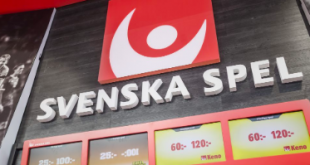Spelbranschens Riksorganisation (SPER), Sweden’s independent online gambling trade association, has published its first assessment of its marketing guidelines and code of conduct sanctioned last April to counter regulatory stakeholder concerns on industry advertising.
Working in partnership with trade association counterpart BOS, SPER developed an action plan for its syndicated members, adhering to guidelines and standards on advertising.
The sanctioned guidelines see SPER and BOS members adhere to undertaking checklists on their marketing inventory, combined with further external evaluations of campaign messages.
Furthermore, a code of conduct on advertising sees operators maintain that marketing campaigns cannot imply ‘anonymous play by a customer’, promote aggressive ‘play now’ messages or proclaim that a win is guaranteed.
Following feedback on seven key criteria, SPER’s first evaluation shows that the guidelines have been followed by its members, who have further benefited from the work of developing moderate marketing frameworks.
“In order to have a functioning self-regulation, it is important that the efforts are evaluated on an ongoing basis,” said Jenny Nilzon, Chief Executive of SPER. “Although the new guidelines have only been in effect since April, it was important for us to follow them up now. We want to see if they work and are used in real life.”
Last March, gambling inspectorate Spelinspektionen and consumer council Konsumentverket stated their concerns with regards to aggressive marketing practices and over-saturation of advertising.
Closing the first quarter of Sweden’s re-regulated online gambling regime, Ardalan Shekarabi – Minister of Civil Affairs – warned licensed incumbents that industry marketing had reached levels of unsustainability.
In addition, Shekarabi would formally warn industry leaders that aggressive marketing practices were unacceptable under Sweden’s new regime, sanctioning a review of marketing standards.
“We continue to work through Sper’s working meetings and dialogue in the industry for a common standard and improvement,” added Nilzon. “But we already see a clear development of the game advertising, both in quantity and content.”









